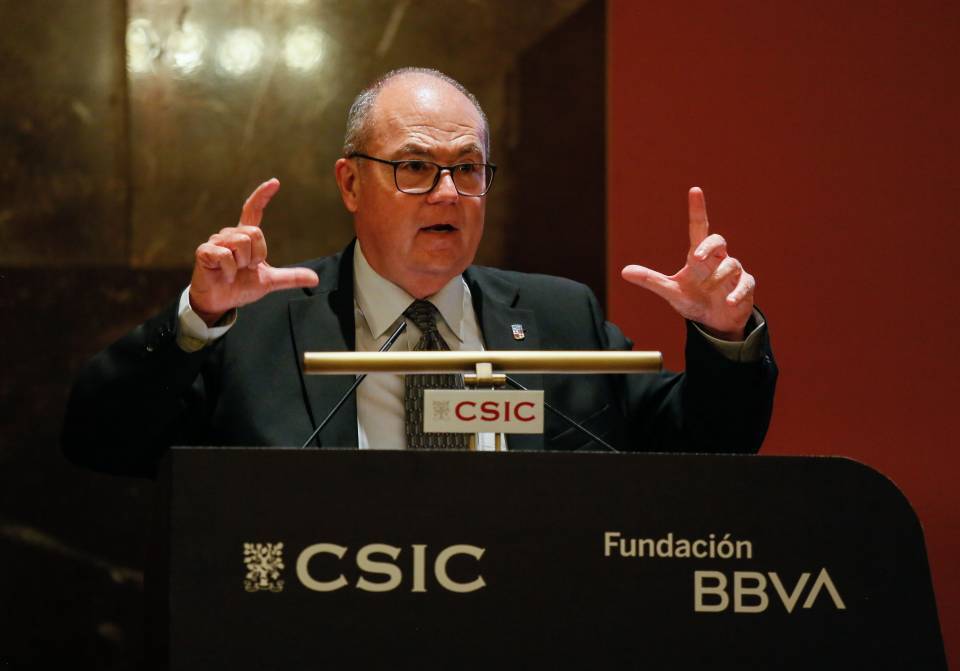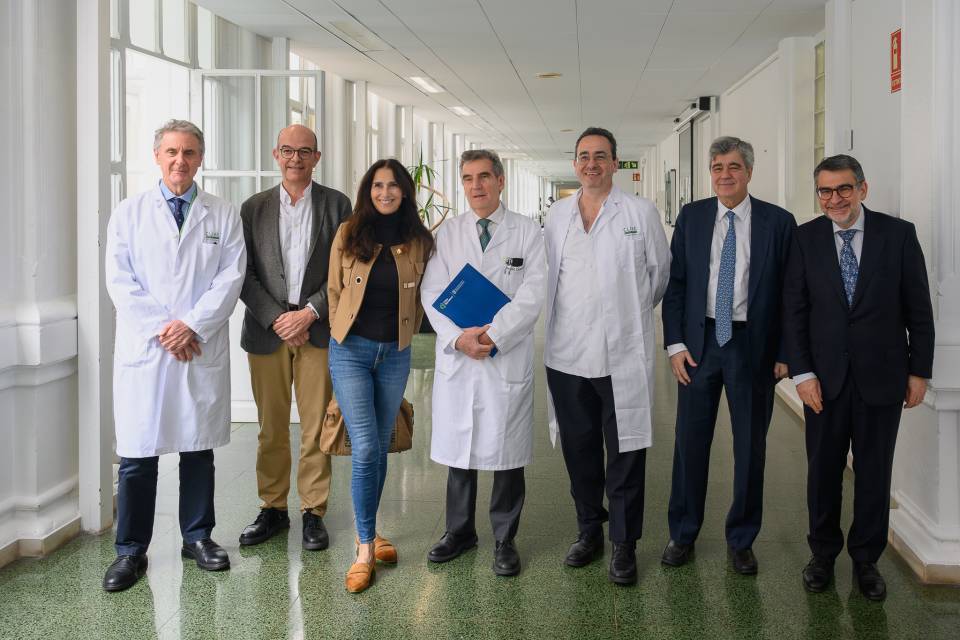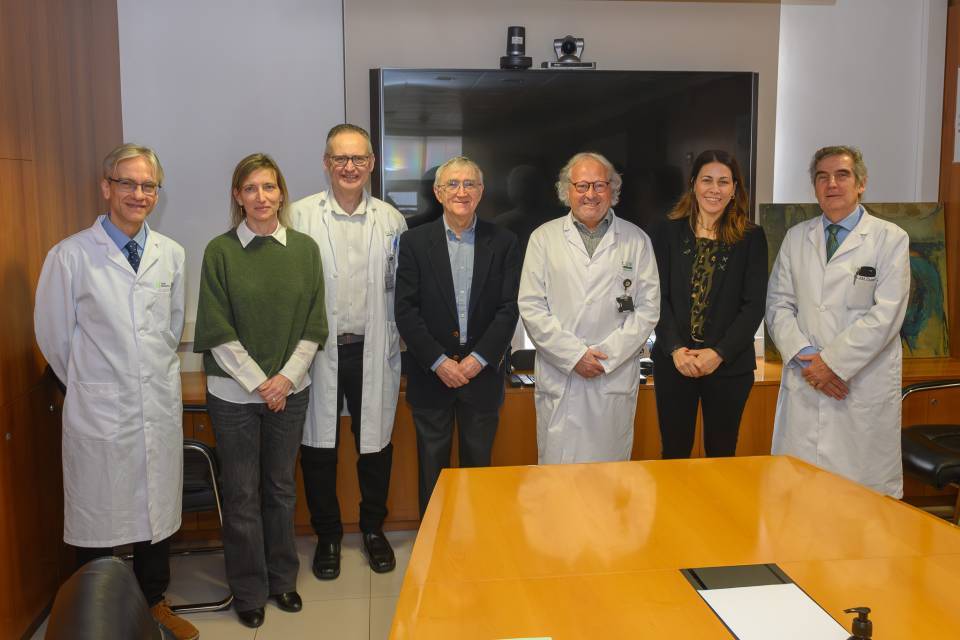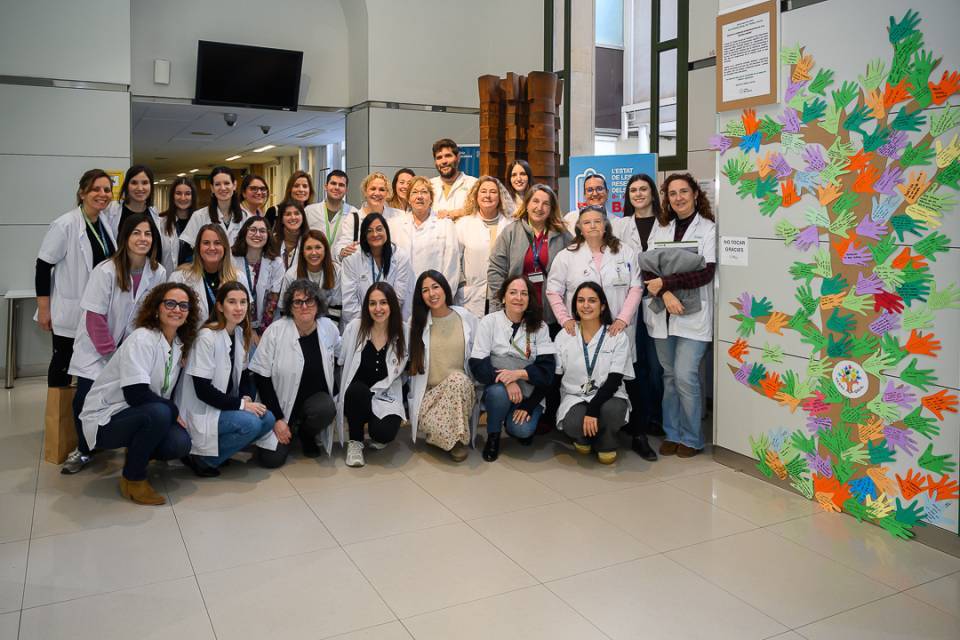The 2 prizes are awarded annually, each endowed with 40,000 euros, with a category aimed to journalists specialized in scientific communication, and another to researchers who have contributed significantly to the dissemination of knowledge in society. In this first year of the Programme to promote Scientific Communication, a total of 114 nominations were received for the Awards and 137 applications for the Grants. The awards have been awarded to the journalists who make up the team that founded Materia, the science section of El País newspaper, and the scientists Antoni Trilla, Alfredo Corell, Margarida de la Vall, José Antonio López Guerrero, and Ignacio López-Goñi.
The outbreak of COVID-10 revealed the need to reinforce the dissemination of validated knowledge to the society, both through conventional media and the new digital channels and formats. Since the start of the pandemic, scientific information has become increasingly sought after by the general public. Scientists who have received the award, such as Dr. Trilla, have become the voice of science since the beginning of the pandemic. They have conveyed scientific knowledge about that epidemiological threat in an accessible language for the public.
Dr. Antoni Trilla is a professor of Public Health at the University of Barcelona, head of the Preventive Medicine and Epidemiology Service at the Hospital Clínic de Barcelona and dean of the Faculty of Medicine and Health Sciences at the University of Barcelona. He is a research professor at ISGlobal (Barcelona Institute for Global Health), where his group carries out research into vaccines, emerging infectious diseases and epidemics. During the pandemic, his presence in the media has been constant, in particular in the La Vanguardia newspaper, for which he has written around 150 articles over the last few months. “Being able to public a daily column first of all, and secondly a weekly column, is a privilege very few academics are able to enjoy,” affirmed Dr. Trilla, who wanted to “explain that science and scientific evidence are the only way to tackle the coronavirus.” He has also published articles or been the source of reports in other media, including The New York Times, The Washington Post and Le Figaro. Recently, Dr. Trilla was nominated Academic Elect of the Royal Academy of Medicine of Catalonia.
During the pandemic, more than half of the citizens have sought information in the press, radio and television media. The need to communicate the updated epidemiological situation and give an understandable and informative explanation to society has allowed society to have a more balanced vision about it. The media has given science sections an important role, conferring it the same level of relevance as the political or the economic information. The global challenge of coronavirus, therefore, has proved with urgency the fundamental role of good quality scientific communication according to the standards of objectivity and testability of qualified science.




